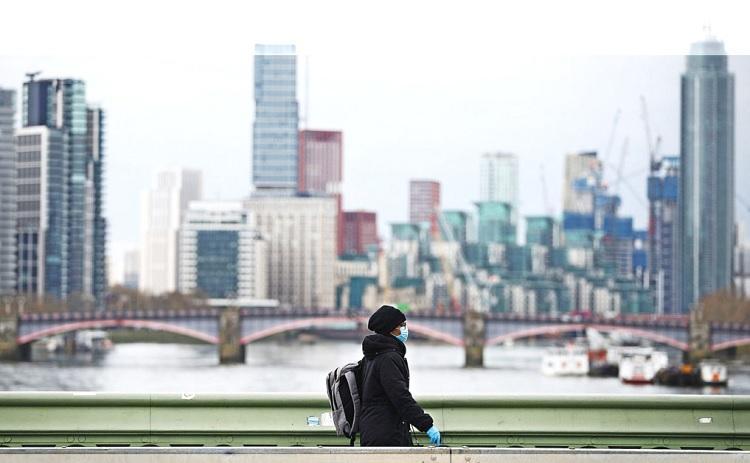UK wants to work with Turkey to meet demand for medical equipment: Ambassador
Sevil Erkuş – ANKARA

The coronavirus pandemic has created a huge demand in countries for certain sorts of medical equipment and much of this is manufactured in Turkey, British Ambassador to Ankara Dominick Chilcott has told Hürriyet Daily News, expressing his country’s will to further cooperate with Turkey to meet the demand in the two countries.
The Prince of Wales, our Prime Minister Boris Johnson, and the health secretary, Matt Hancock, who have tested positive for the virus, all are doing well, he added.
When was the first case detected in your country? What is the current situation?
The first confirmed cases of the coronavirus in the U.K. were recorded on Jan. 31, although the first fatality from the virus was not until March 5. As most countries around the world have experienced, we saw the number of cases begin to rise exponentially; hence the strong measures adopted in order to slow the spread of the virus. Figures are changing every day, but currently, more than 2,000 patients who tested positive for coronavirus in the U.K. have sadly died.
As you would have seen in the news, even HRH the Prince of Wales, our Prime Minister Boris Johnson, and the health secretary, Matt Hancock, have tested positive for the virus, although fortunately all are doing well. This shows that no one is immune and that to protect lives we all have to obey the rules and avoid social interaction as much as possible.
What are the measures your government has taken so far? What is the main approach your government has adopted?
From the beginning, our government treated the threat of the coronavirus seriously and took action based on science and evidence. As early as Feb. 10, the government took on stronger legal powers to protect public health.
On March 3 we published our coronavirus action plan. Thereafter, as the situation escalated, the government has introduced stricter measures to encourage “social distancing.” Non-essential shops, as well as parks and libraries, have been closed; people have been asked to leave their homes only to get food or medicine; people should only travel to work if essential and should work from home if possible.
The police have also been given increased authority to disperse gatherings and impose fines on people who violate these guidelines. However, the overriding approach is to appeal to people’s sense of duty to do the right thing to protect the most vulnerable in their society.
Most recently, the prime minister wrote a letter to 30 million households in Britain asking them to obey the rules, stay at home and protect the National Health Service and save lives.
What are the strengths and weaknesses of your approach?
We are trying to contain the spread of the virus by detecting early cases and tracking those people in contact with them. We are taking measures to delay the disease by trying to slow the spread and lowering its peak impact. We are conducting research to better understand the virus and to develop ways to lessen its effect on the population.
We are also working on new methods of diagnosis, new drugs and vaccines in order to mitigate its effects and provide the best care possible for people who become ill. In all of this, it is essential to support hospitals to maintain essential services and to minimize the overall impact of the disease on society, public services and the economy.
Is your government in cooperation with other nations in fighting the coronavirus?
All countries need to work together to defeat the pandemic, especially in terms of research and development of treatments and vaccines. The U.K. has set out an international strategy for combatting the virus that we hope other countries will also get behind. We will support the WHO’s efforts to coordinate a response to the threat to human health from the pandemic. We’ll put money into developing a new vaccine and new treatments.
We’ll help strengthen the health systems of the most vulnerable countries. We’ll argue for keeping open vital trade routes and supply chains for foodstuffs and medicines. And we’ll argue in the G20 and other fora for policies that minimize the damage to the global economy while we fight the virus together.
Do you have any kind of cooperation with Turkey as part of the struggle against COVID-19?
So far, our cooperation has mostly focused on helping to get our respective citizens back home. [Turkish Airlines] THY laid on special flights to bring Turks back from the U.K. and were able to assist us in repatriating British nationals and residents on those planes traveling out of Turkey.
Now that there are no longer direct commercial flights between the UK and Turkey, we are liaising with the Turkish government and other diplomatic missions here in Turkey over the return of British nationals via third countries. We are in touch with the authorities about those Brits remaining in Turkey to ensure, so far as possible, that they are safe and in good health and have somewhere to stay while they remain here. We are grateful for the Turkish administration’s assistance and cooperation.
Separately, the pandemic has created a huge demand in our countries for certain sorts of medical equipment. Much of this is manufactured in Turkey. So, we are keen that our industries should work together to meet the demand in our two countries and more widely for essential items such as ventilators and protective clothing.
















